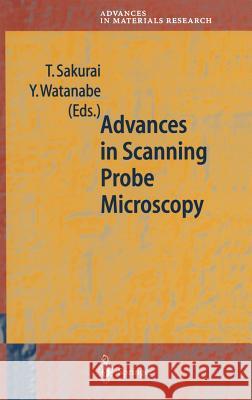Advances in Scanning Probe Microscopy » książka
Advances in Scanning Probe Microscopy
ISBN-13: 9783540667186 / Angielski / Twarda / 2000 / 343 str.
There have been many books published on scanning tunneling microscopy (STM), atomic force microscopy (AFM) and related subjects since Dr. Cerd Binnig and Dr. Heinrich Rohrer invented STM in 1982 and AFM in 1986 at IBM Research Center in Zurich, Switzerland. These two techniques, STM and AFM, now form the core of what has come to be called the 'scanning probe microscopy (SPM)' family. SPM is not just the most powerful microscope for scientists to image atoms on surfaces, but is also becoming an indispensable tool for manipulating atoms and molecules to construct man-made materials and devices. Its impact has been felt in various fields, from surface physics and chemistry to nano-mechanics, nano-electronics and medical science. Its influence will surely extend further as the years go by, beyond the reach of our present imagination, and new research applications will continue to emerge. This book, therefore, is not intended to be a comprehensive review or textbook on SPM. Its aim is to cover only a selected part of the active re- search fields of SPM and related topics in which I have been directly involved over the years. These include the basic principles of STM and AFM, and their applications to fullerene film growth, SiC surface reconstructions, MBE (molecular beam epitaxy) growth of CaAs, atomic scale manipulation of Si surfaces and meso scopic work function.











